SUMMARY
This is AI generated summarization, which may have errors. For context, always refer to the full article.
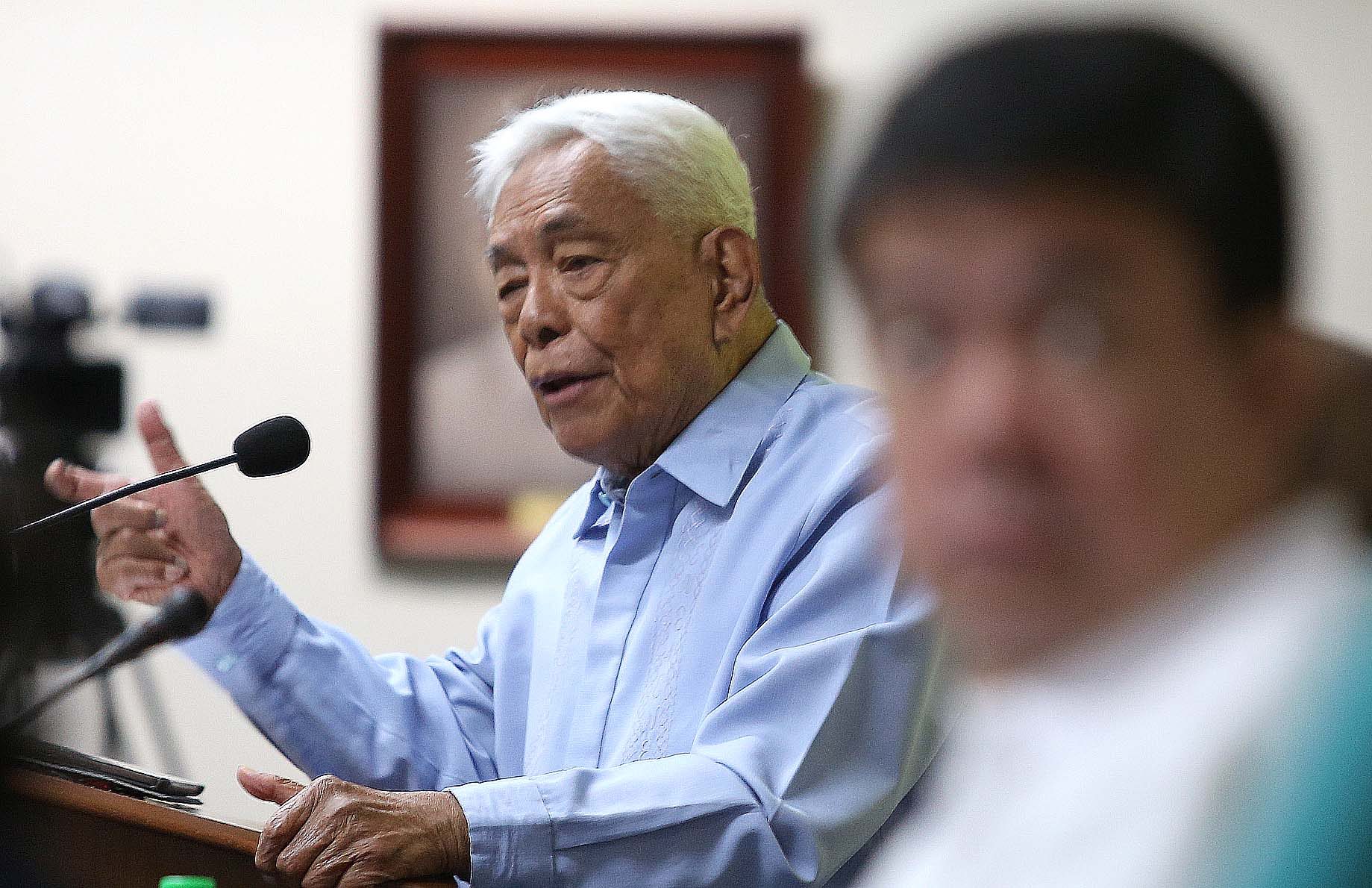
Former Senate president Nene Pimentel fought for the powerless and promoted the rule of law, and these fueled his staunch opposition to the Marcos dictatorship
MANILA, Philippines – Aquilino “Nene” Pimentel J.r, a stalwart of Philippine politics and democracy, died on Sunday, October 20. He was 85 years old.
A courageous defender of freedom, Pimentel exhibited his integrity and patriotism in many pivotal moments in the country’s history. He fought for the powerless and promoted the rule of law, and these fueled his staunch opposition to the Marcos dictatorship.
He was also known as the “Father of the Local Government Code” and later pushed for federalism as the Philippines’ form of government, his ways of championing the autonomy of local governments and the power of the people.
Pimentel was a senator for 3 terms, from 1987 to 1992, then from 1998 to 2010. He was Senate President from November 2000 to June 2001.
His son and namesake, Aquilino “Koko” Pimentel III, followed in his father’s footsteps. Koko became a Bar topnotcher lawyer, senator, and Senate President in his own right.
Early life
Nene’s father is Aquilino Pimentel Sr., himself a lawyer in Cagayan de Oro City or CDO. His mother, Petra Quilinging, was a public school teacher from Batac, Ilocos Norte. In his book, Martial Law in the Philippines: My Story, Pimentel said his parents’ “simple lives of honest toil helped charter the course of my own.” Pimentel Jr was born on December 11, 1933, in Claveria, Misamis Oriental, not far from Cagayan de Oro. He spent his entire student life at Ateneo de Cagayan (now Xavier University), and earned his law degree there in 1959. He passed the Bar the same year. In April 1960, he married Lourdes “Bing” de la Llana, and they had six children, among them future senator Koko Pimentel and future Human Rights Commissioner Gwendolyn Pimentel Gana. Nene fondly described Bing as “mother and father” to their children as he was always absent in the lives of his children growing up. She stood patient in her husband’s public duties and composed songs of love and loneliness. Pimentel became the dean of Xavier’s College of Law from 1962 to 1967. Around that time, he also co-organized a lawyers’ group in CDO as their form of defense against what they called “oppressive judges.”Fighting Marcos
A few years later, he was elected to the 1971 Constitutional Convention (ConCon), representing CDO and Misamis Oriental. However, the mood at the convention for a new Philippine Constitution quickly changed when then-President Ferdinand Marcos declared Martial Law in September 1972. Marcos committed “the ultimate sin,” Pimentel said in his book. He added that Martial Law “clashed violently with my deeply-held belief…that it is democracy, not one-man rule, which enhances the value of human life and assures the equal protection of the rights of the people.” Fearing that the ConCon will be used to further Marcos’ political agenda, Pimentel and other delegates gathered to become the opposition. Pimentel continued to be a thorn in Marcos’ side, not fearing the dictator’s fervent attempts to punish him. He was arrested four times for his criticism of the dictatorship, which cooked up various charges to haul Pimentel to jail. But one way or another, with the law and his supporters on his side, he would not last long in detention. During Pimentel’s first detention in 1973 in Camp Crame, his wife composed a song called “Only a Moment,” which describes the pain of separation. In 1978, he and his Lakas ng Bayan (Laban) party mates lost in their bids to become members of the Interim Batasang Pambansa. They protested what they called a “sham” election. In 1980, he was elected mayor of Cagayan de Oro City, capturing the support of his kababayans and defeating the candidate of Marcos’ Kilusang Bagong Lipunan party. The Marcos regime ousted him from office in 1981 for supposed “political turncoatism.” But massive demonstrations in Pimentel’s hometown – similar to the People Power revolution in 1986 – forced Marcos to reinstate him as mayor. Around this time, in 1982, Pimentel and other politicians in Visayas and Mindanao formed the Partido Demokratiko Pilipino (PDP) party. Opposition to the Marcoses reached fever pitch after the assassination of Benigno “Ninoy” Aquino Jr in August 1983. It was in this setting when Pimentel ran and won in 1984 as the assemblyman for CDO at the Regular Batasang Pambansa. Once again, the dictatorship ousted Pimentel, this time based on cheating allegations during the polls. But the Supreme Court sided with Pimentel and reinstated him. For the 1986 snap elections – shortly after PDP merged with the Laban party to form PDP-Laban – the opposition’s pick for president, Corazon “Cory” Aquino, said Pimentel was her original pick as vice president, but she recounted that he “accepted it manfully” when Salvador Laurel officially became her running-mate following negotiations. For his part, Pimentel said his main concern at the time was to help unify the opposition, and having Laurel as the VP bet “was good for the nation at that time.”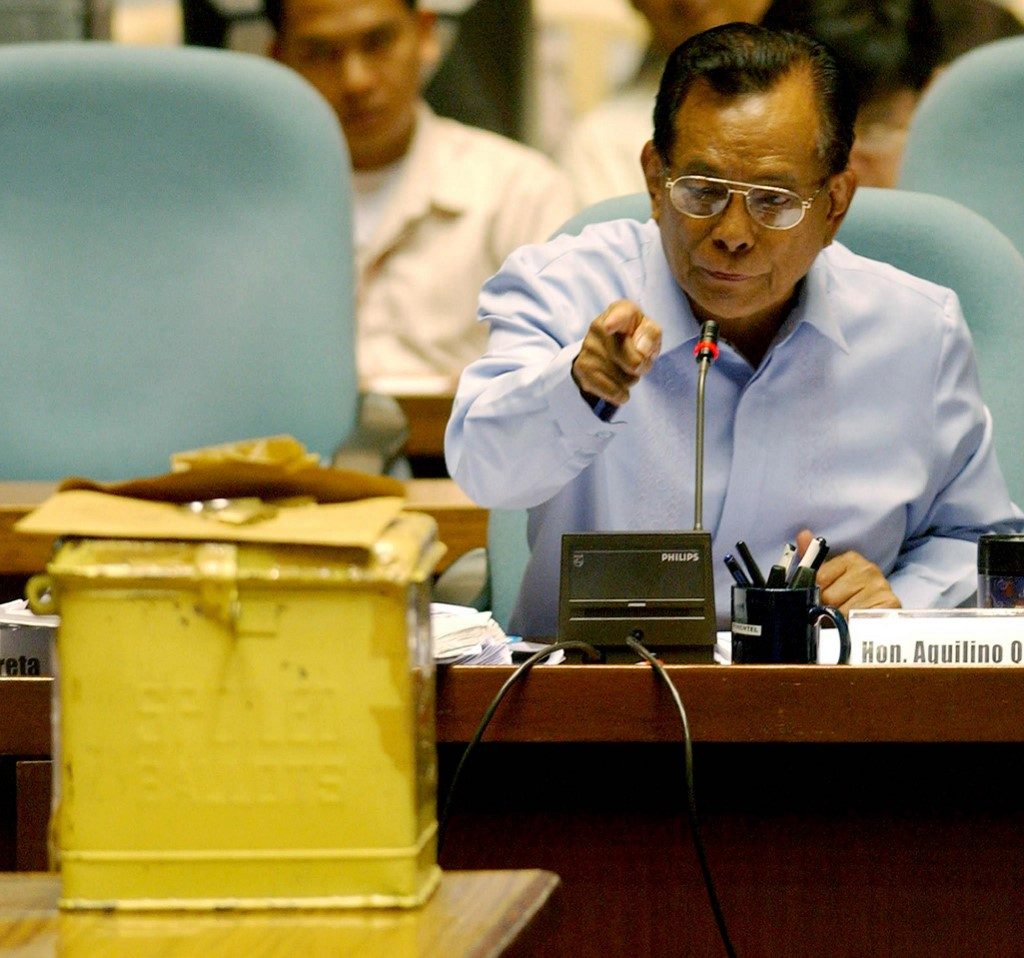
Post-People Power
After the 1986 People Power revolution which installed Aquino to the presidency, she enlisted Pimentel’s help in rebuilding the country. He was appointed local government minister (later secretary), and then the government’s chief peace negotiator with Muslim separatists in 1987. He won his first Senate race in 1987, placing 20th with over 9 million votes. It was at this time when Pimentel authored the Local Government Code, which decentralizes governance and provides for the autonomy of local government units. It was signed in October 1991. Apart from the Local Government Code, Pimentel sponsored a number of laws during his first Senate stint. These include the Cooperative Code, the Philippine Sports Commission Act, and the People’s Small-Scale Mining Act, which mandates simple methods of mining and not with explosives. He was also behind the law creating the Autonomous Region in Muslim Mindanao in 1989. Pimentel also authored and co-sponsored the Generic Drugs Act, which requires the use of generic terminology in supplying drugs, and ensures their adequate distribution. Generic names also promote drug safety by minimizing duplication. In September 1991, he joined 11 senators in voting against the extension of US bases, ending the Americans’ military presence in the Philippines. (Eight years later, Pimentel would reject the Visiting Forces Agreement with the United States, but he and 4 others were voted down by 18 senators in favor of the treaty’s ratification.) In 1992, Pimentel was tapped by then-Senate President Jovito Salonga to be his running-mate in the presidential elections. Pimentel ranked only 5th in the polls; Salonga, 6th. (READ: Nene Pimentel remembers ‘Jovy Salonga, the man’) Pimentel ran for the Senate again in 1995, but placed only 15th. However, he held evidence showing he was cheated through a “dagdag-bawas” scheme or padding or shaving of votes. His dogged determination for truth won him enough support to be elected to the Senate again in 1998, landing in 4th place with over 10 million votes. He became Senate President in November 2000.‘I resign’
His unquestionable integrity was on full display in January 2001, at the height of the impeachment of then-president Joseph Estrada. Senators were deciding whether to open the second envelope containing incriminating evidence against Estrada. Pimentel and 9 others voted to unveil its contents, but 11 senators outvoted them, opting to keep it closed. In disgust, he abruptly announced his resignation as Senate President, and stepped down in June 2001, after the election of his replacement, Franklin Drilon. He became Senate minority leader in the next 12th Congress. (He had a short stint as majority floor leader from June to July 2002.) Pimentel was reelected in 2004, attaining the third-highest number of votes among 48 candidates. He stayed on as the minority leader until the end of his term in 2010. As chair of the Senate Blue Ribbon Committee, he recommended the prosecution of top government officials in previous administrations involved in the Expo Pilipino scam and in the fund misuse of the Retirement and Separation Benefits Systems of the Armed Forces. The Blue Ribbon Committee under Pimentel’s eye also conducted investigations on Mayor Luis “Chavit” Singson’s alleged jueteng scandal in 2002. In 2008, Pimentel authored a bill that introduced federalism as a possible shift in the Philippine governing system.Post-politics
Pimentel retired from politics after serving his 3rd and final Senate term in June 2010. That year, he told the Inquirer that his wife and children never complained or blamed him for his turbulent life. “As I look back on those early years, I often wonder how I survived the trials and tribulations of public life without Bing’s guiding hand and wise counsel. Without her, I don’t think my children and I would be where we are now.” He remained a leading proponent for a federal system of government in the Philippines. He proposed the creation of 11 federal states with Metro Manila as the capital of the federal republic. The states would have a total of 81 senators. His son Koko would back up the proposal in the 18th Congress. Nene Pimentel was also a member of the Consultative Committee formed by President Rodrigo Duterte to propose amendments to the 1987 Constitution. – Rappler.comAdd a comment
How does this make you feel?
Loading
![[Just Saying] Marcos: A flat response, a missed opportunity](https://www.rappler.com/tachyon/2024/04/tl-marcos-flat-response-april-16-2024.jpg?resize=257%2C257&crop=277px%2C0px%2C720px%2C720px)
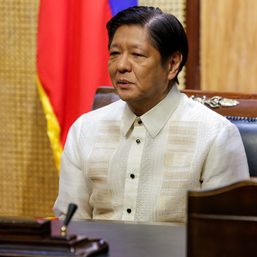

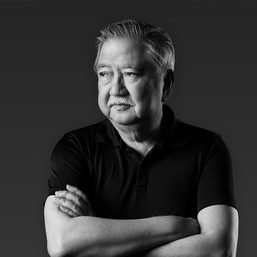
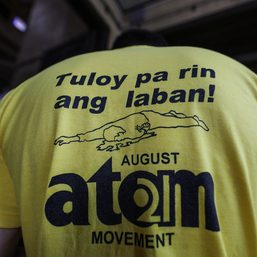
There are no comments yet. Add your comment to start the conversation.